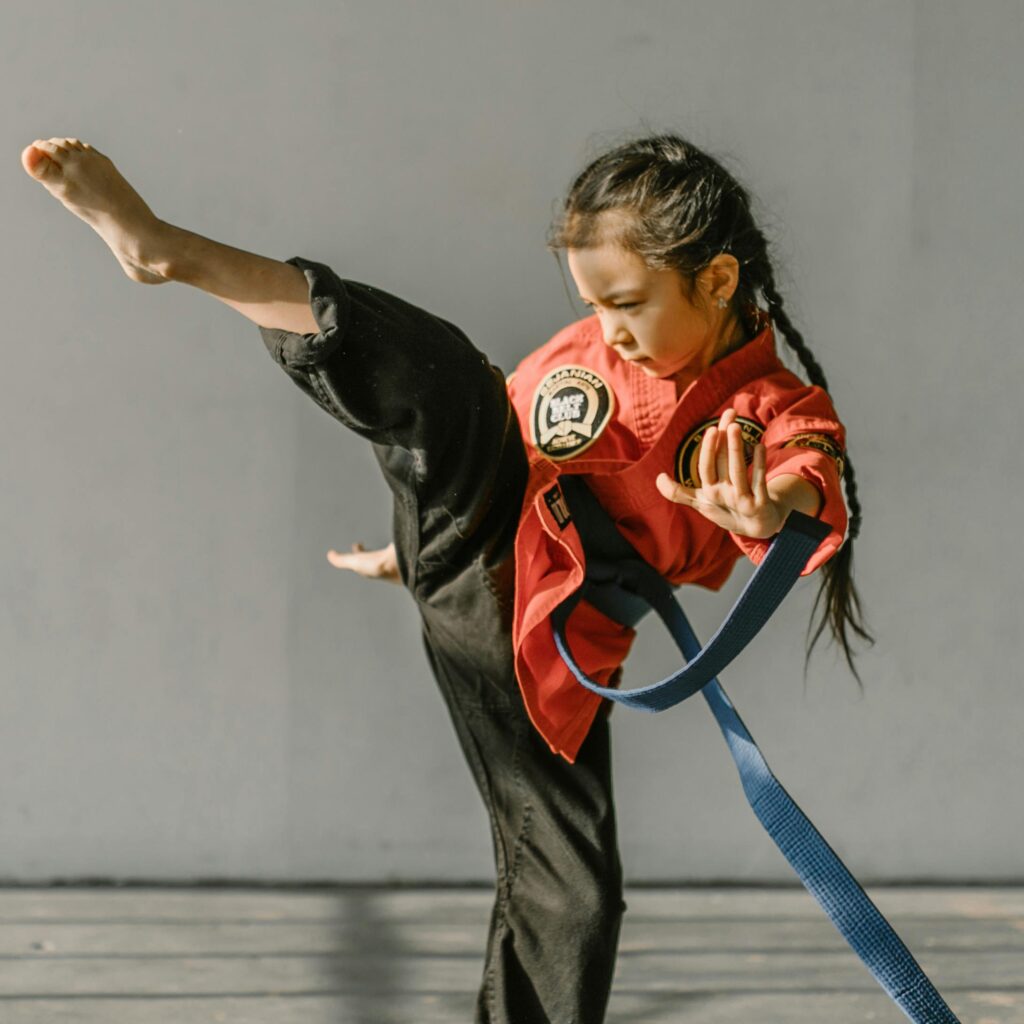Karate is an excellent activity for children. It teaches discipline, boosts confidence, and promotes physical fitness. However, getting kids to practice karate regularly can sometimes be a challenge. In this guide, we’ll explore practical and effective strategies to encourage your child to embrace karate practice enthusiastically. From making it fun and setting achievable goals to creating a supportive environment at home, these tips will help you nurture your child’s interest in karate and foster a lifelong love for this martial art.
Make Karate Fun
The first step to encourage kids to practice karate is to make it fun. Children are more likely to engage in activities they enjoy. You can incorporate games and playful exercises into their practice sessions. For example, you can create obstacle courses or play “karate tag.” This keeps them excited and looking forward to practice.
Set Realistic Goals
Setting achievable goals is crucial. These goals can be as simple as mastering a new move or attending a certain number of classes. When kids see their progress, they feel a sense of accomplishment. Celebrate their achievements, no matter how small. This positive reinforcement motivates them to continue practicing.
Create a Routine
Having a consistent routine helps children develop a habit. Set aside specific times each week for karate practice. This way, it becomes a regular part of their schedule. Be sure to stick to the routine and be flexible when necessary. Life can be unpredictable, and adjusting the schedule occasionally is okay.
Be a Role Model
Kids often copy the actions of people they see. If they see you being active and committed to your activities, they are likely to follow suit. Show enthusiasm for physical activity and discuss the benefits of practicing karate. Your positive attitude will inspire them to be more engaged.
Encourage Friendships
Karate can be more enjoyable for kids, especially when they have friends with whom to practice. Encourage your child to make friends in their karate class. Arrange playdates or practice sessions with these friends. Practicing with peers can make the experience more enjoyable and less of a chore, enhancing the overall benefits of karate for Kids.
Provide the Right Environment
Create a supportive and conducive environment for practice at home. Ensure there is a safe, open space where your child can practice their moves. Remove any potential hazards and provide the necessary equipment. This shows your child that their practice is important and valued.
Use Positive Reinforcement
Praise and rewards are powerful motivators. When your child makes an effort or achieves a milestone, acknowledge it. Use words of encouragement and praise for their hard work. You can also offer small rewards, such as stickers or extra playtime, to reinforce their dedication.
Break Down Practice Sessions
Long practice sessions can be overwhelming for kids. Instead, break them down into shorter, manageable chunks. This makes practice less daunting and more approachable. For example, a 10-minute session focused on one specific skill can be very effective. Over time, these short sessions add up and lead to significant improvement.
Incorporate Family Time
Turn karate practice into a family activity. Practice together or take turns learning new moves. This not only supports your child but also strengthens family bonds. It shows that you are invested in their interests and enjoy spending time with them.
Stay Positive
Maintain a positive and encouraging attitude. Avoid expressing frustration if your child is not immediately enthusiastic about practicing. Patience and understanding go a long way. Celebrate their efforts and remind them that progress takes time.
Use Visual Aids
Children respond well to visual aids. Use videos, posters, or books that demonstrate karate moves and techniques. Watching others perform can be inspiring and help them understand what they are aiming for. Visual aids can also serve as a reference during practice.
Keep Communication Open
Talk to your child about their karate practice. Ask them how they feel about it and what they enjoy most. Listen to their concerns and address any issues they might have. Open communication builds trust and helps you better support them.
Emphasize the Benefits
Discuss the benefits of practicing karate. Explain how it helps with physical fitness, self-defense, and mental focus. When children understand the advantages, they are more likely to be motivated. Highlight stories of how karate has helped others to make it relatable.
Participate in Events
Involvement in karate events, such as tournaments or demonstrations, can be very motivating. These events provide goals to work towards and a sense of accomplishment. Encourage your child to participate and celebrate their efforts, regardless of the outcome.
Be Patient
Encouraging kids to practice karate is a gradual process. Be patient and consistent with your support. Every child is different; some may take longer to develop a routine. Keep encouraging and showing your support, and eventually, they will create a love for karate.
In conclusion, karate for kids isn’t just about learning martial arts; nurturing a child’s interest in karate requires patience, creativity, and consistent support. By making karate enjoyable, setting achievable goals, and fostering a positive environment, parents can inspire their children to embrace this martial art. Encouraging friendships, incorporating family time, and emphasizing the benefits of karate also play crucial roles in sustaining their motivation. Remember, progress takes time, and each child’s journey is unique. By staying patient, positive, and engaged, parents can instill a lifelong love for karate in their children, helping them grow not only physically but also mentally and emotionally.

